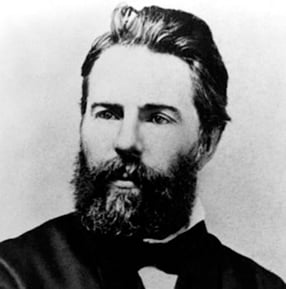A Meditation
Attributed to a northerner after attending the last of two funerals from the same homestead—those of a national and a confederate officer (brothers), his kinsmen, who had died from the effects of wounds received in the closing battles.
How often in the years that close,
When truce had stilled the sieging gun,
The soldiers, mounting on their works,
With mutual curious glance have run
From face to face along the fronting show,
And kinsman spied, or friend—even in a foe.
What thoughts conflicting then were shared,
While sacred tenderness perforce
Welled from the heart and wet the eye;
And something of a strange remorse
Rebelled against the sanctioned sin of blood,
And Christian wars of natural brotherhood.
Then stirred the god within the breast—
The witness that is man’s at birth;
A deep misgiving undermined
Each plea and subterfuge of earth;
They felt in that rapt pause, with warning rife,
Horror and anguish for the civil strife.
Of North or South they reked not then,
Warm passion cursed the cause of war:
Can Africa pay back this blood
Spilt on Potomac’s shore?
Yet doubts, as pangs, were vain the strife to stay,
And hands that fain had clasped again could slay.
How frequent in the camp was seen
The herald from the hostile one,
A guest and frank companion there
When the proud formal talk was done;
The pipe of peace was smoked even ’mid the war,
And fields in Mexico again fought o’er.
In Western battle long they lay
So near opposed in trench or pit,
That foeman unto foeman called
As men who screened in tavern sit:
“You bravely fight” each to the other said—
“Toss us a biscuit!” o’er the wall it sped.
And pale on those same slopes, a boy—
A stormer, bled in noon-day glare;
No aid the Blue-coats then could bring,
He cried to them who nearest were,
And out there came ’mid howling shot and shell
A daring foe who him befriended well.
Mark the great Captains on both sides,
The soldiers with the broad renown—
They all were messmates on the Hudson’s marge,
Beneath one roof they laid them down;
And, free from hate in many an after pass,
Strove as in school-boy rivalry of the class.
A darker side there is; but doubt
In Nature’s charity hovers there:
If men for new agreement yearn,
Then old upbraiding best forbear:
“The South’s the sinner!” Well, so let it be;
But shall the North sin worse, and stand the Pharisee?
O, now that brave men yield the sword,
Mine be the manful soldier-view;
By how much more they boldly warred,
By so much more is mercy due:
When Vicksburg fell, and the moody files marched out,
Silent the victors stood, scorning to raise a shout.
From Timoleon, Etc. (The Caxton Press, 1891). This poem is in the public domain.

